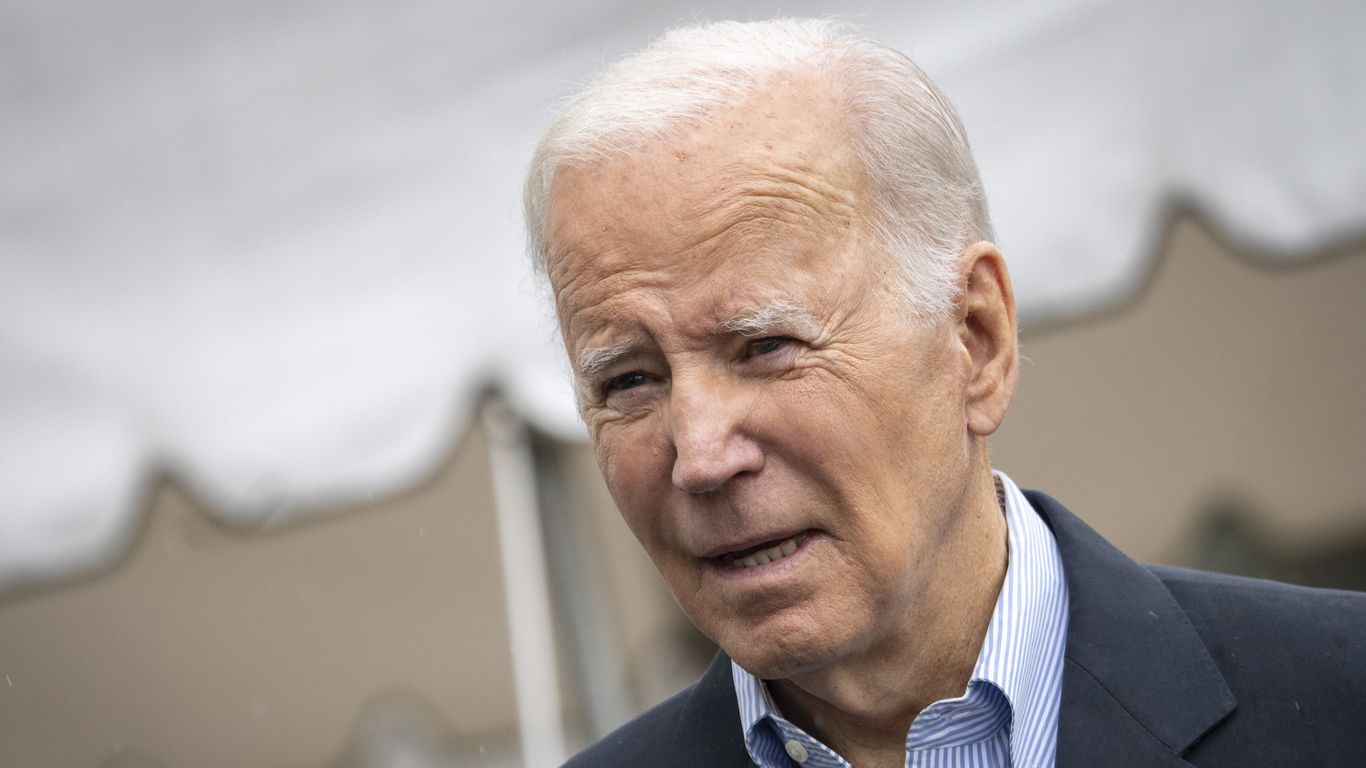A union representing nearly 12,000 railroad workers on Monday voted down the tentative contract agreement between freight railroad companies and all 12 of their unions brokered by the White House last month.
Why it matters: The rejection, by the Brotherhood of Maintenance of Way Employes Division of the Teamsters (BMWED), raises the prospect once again of a nationwide rail strike. That would be devastating for the economy and possibly arrive during peak holiday season — a political headache for the Biden administration.
- “Railroaders do not feel valued. They resent the fact that management holds no regard for their quality of life, illustrated by their stubborn reluctance to provide a higher quantity of paid time off, especially for sickness,” said BMWED president Tony Cardwell in a statement.
- The rejection is a “big deal,” a union official told Axios. If the parties can’t come to terms, then there could be a strike that other unions would honor — or Congress might step in.
The reaction: In a statement, the group that represents the freight companies in bargaining, the National Carriers’ Conference Committee, said they were “disappointed,” but noted that for now nothing changes. “The failed ratification does not present risk of an immediate service disruption,” it said.
- White House spokesperson Robyn Patterson told Axios in an email that President Biden “remains focused on avoiding a rail shutdown, and both sides have said they share that desire.”
- “We stand ready to support the parties in their efforts, and continue to urge both sides to finish their work and avoid even the threat of a shutdown in the future,” Patterson added.
State of play: There are 12 unions that represent about 115,000 workers. Four other unions have ratified the agreement, and over the next month or so, seven more are set to vote.
- The agreement gives employees a substantial pay raise — after nearly three years of no increases — but doesn’t adequately address many workers’ concerns over workplace conditions, insiders told Axios.
- The two largest unions that represent conductors and engineers — making up about half the total rail workforce — aren’t set to conclude voting until November 17.
- A further back-and-forth wouldn’t be unusual. Last year, John Deere union members voted down a contract two times over pay increases they saw as inadequate before finally approving one in mid-November. They also went on strike for a time.
Between the lines: The best case scenario from a business perspective, Wall Street analysts say, is the deal goes through and the higher wages attract new hires — crucial in an industry struggling with shortages.
- If the unions vote down the deal, it could be left to a lame-duck Congress to step in. That would give Democrats more cover to force workers into a deal, Bascome Majors, a railroad analyst at Susquehanna, wrote in a recent note.
What they’re saying: Jeremy Ferguson, president of SMART, the biggest union with 37,000 members, said the tentative agreement fell short of his expectations.
- “I will not sell members on this tentative agreement. It is my responsibility and duty to provide you with factual information and allow you to make an educated choice,” he added in a separate statement.
Meanwhile, the most vocal workers are saying they don’t like the deal — but it’s not clear if they’re in the majority.
- “It’s horrible,” a freight conductor and union member in Nevada told Axios about the agreement. He asked Axios for anonymity, fearing retaliation from his employer.
- He is encouraging colleagues to vote “no” on the tentative agreement.
- On a Zoom call, hosted by Railroad Workers United — an affinity group with members from all the unions — workers said they didn’t like the agreement’s provisions around sick leave, worried about changes to the way schedules are managed and said health insurance costs were too high in the new deal. Many said they wouldn’t vote for it.
What to watch: The upcoming votes.
